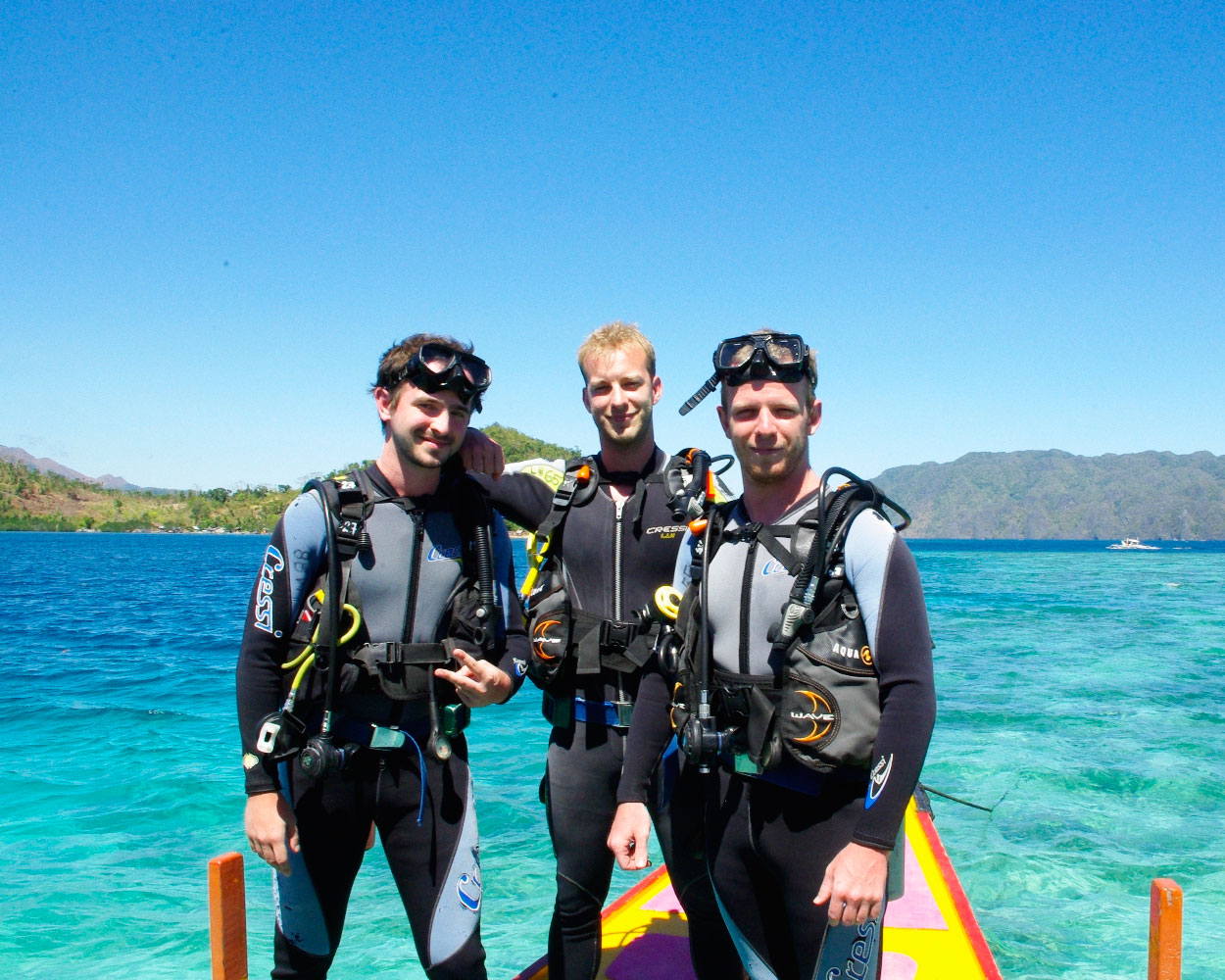A few months ago, The Bakery hopped on a plane to Hong Kong to take on a project with a local startup. After spending a few days with the team in HK, we established temporary headquarters in Manila (Philippines) to train and support their local development team. We spent 2 full months working from Manila followed by an 8-week-long journey through Philippines and Indonesia - while continuing our contract work.
Here’s a little retrospective on our adventures, including a few thoughts and anecdotes about being nomad workers.
Taming Manila
With over 11 millions inhabitants, Manila is an urban jungle buzzing with people and vehicles. The traffic congestion is unlike anything we had seen before and is a huge drag to productivity. My advice to anybody planning to live or work there is to absolutely minimize your commute distance as you can easily lose hours to travel a few kilometers.
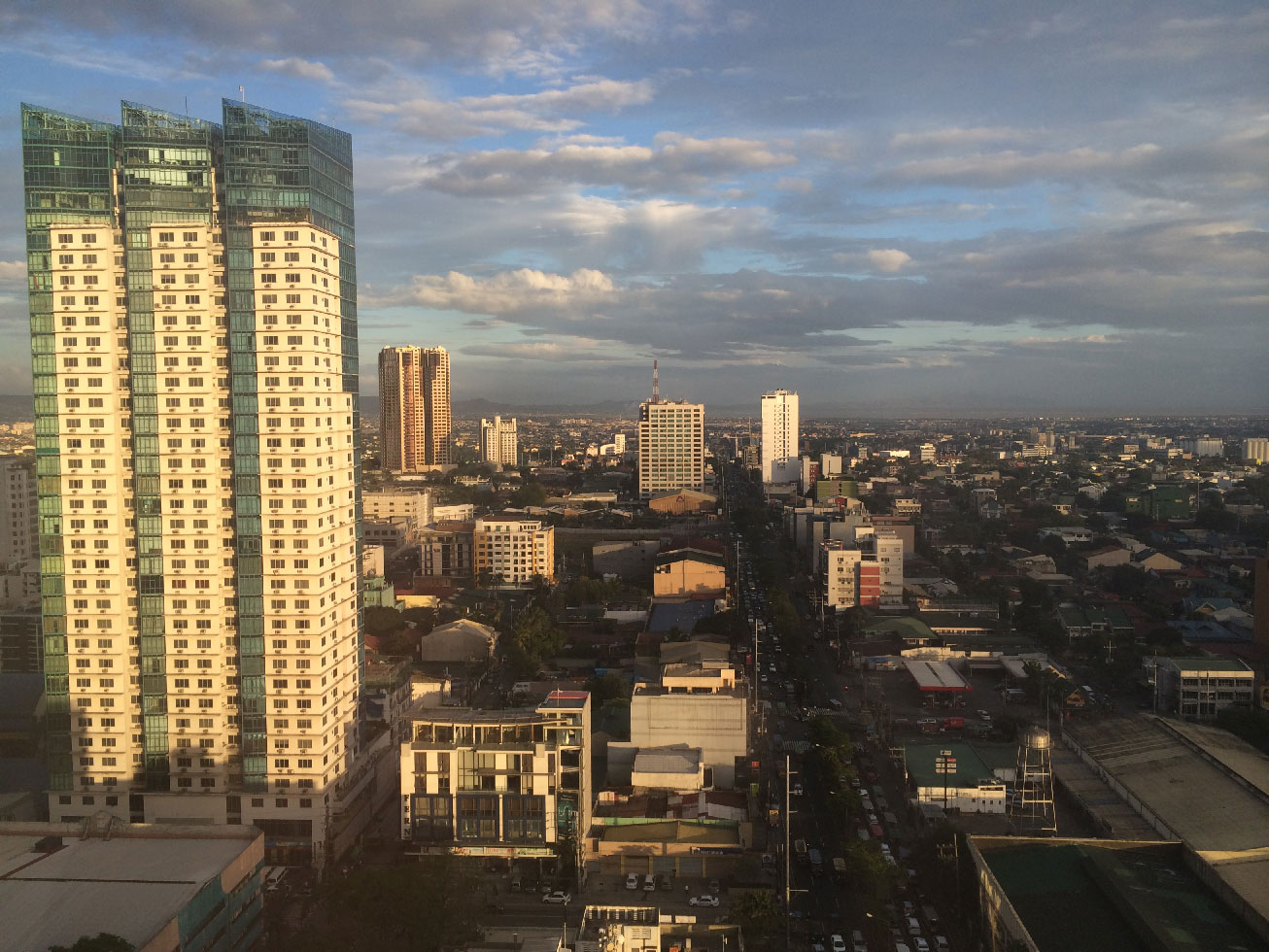
The population density is a blow to the quality of life, with high pollution and too few green spaces. Nonetheless, the quality of the people we met more than made up for it. We thoroughly enjoyed our daily interactions with Filipinos who usually were very friendly and good-humored. We also had lots of fun working with the local dev team and shared a few long nights of classic startup culture (read ninjas, pizza and beer).
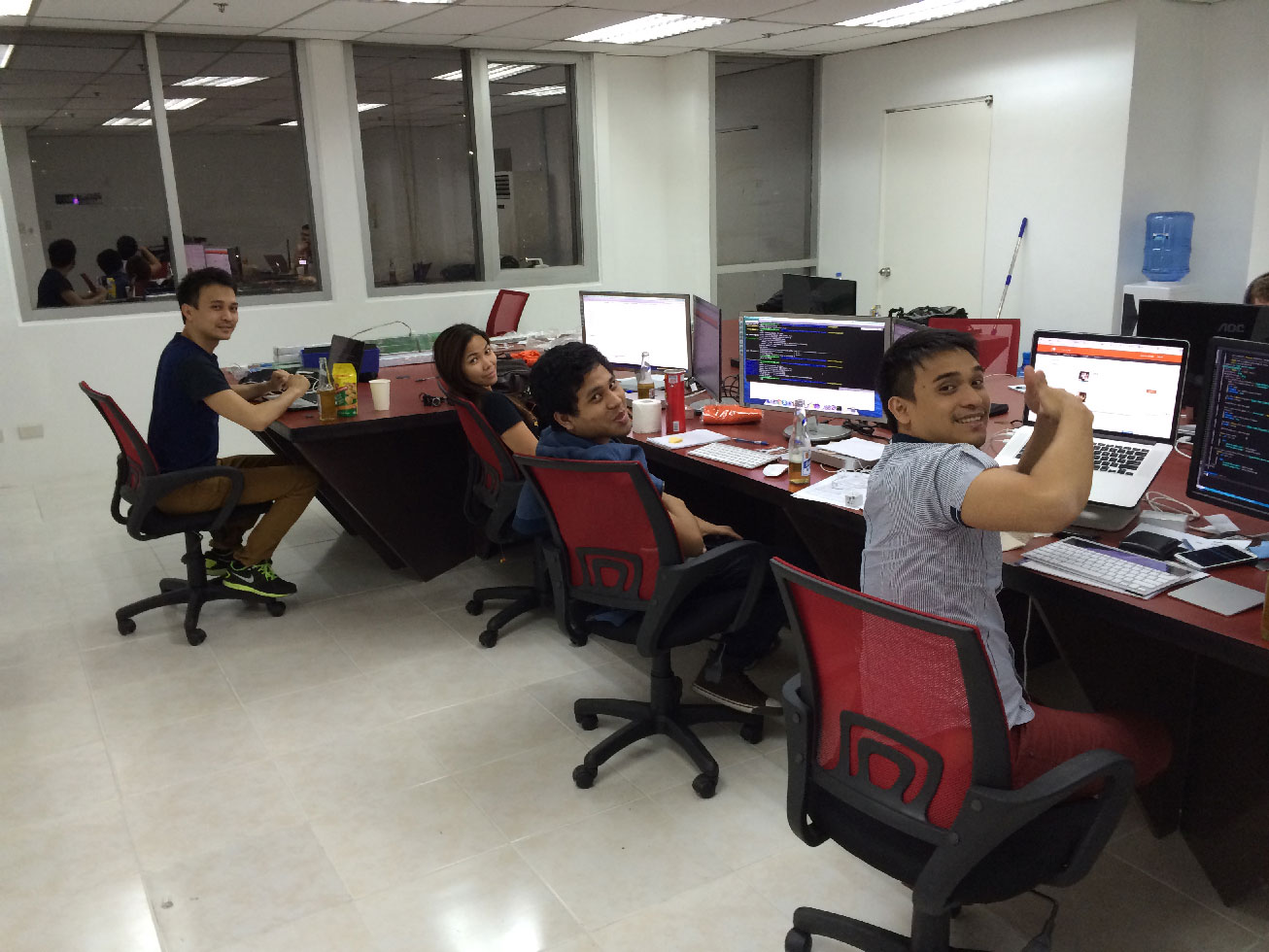
Finally, despite what we had heard about Manila being a dangerous city, we encountered no problem of our own (except for that one shooting at Mall of Asia…).
Going Nomad and Finding Monkeys
Our next stop was Coron, a dreamlike island located in the north of the Palawan archipelago. This is when the real nomad life started accompanied with its share of challenges.
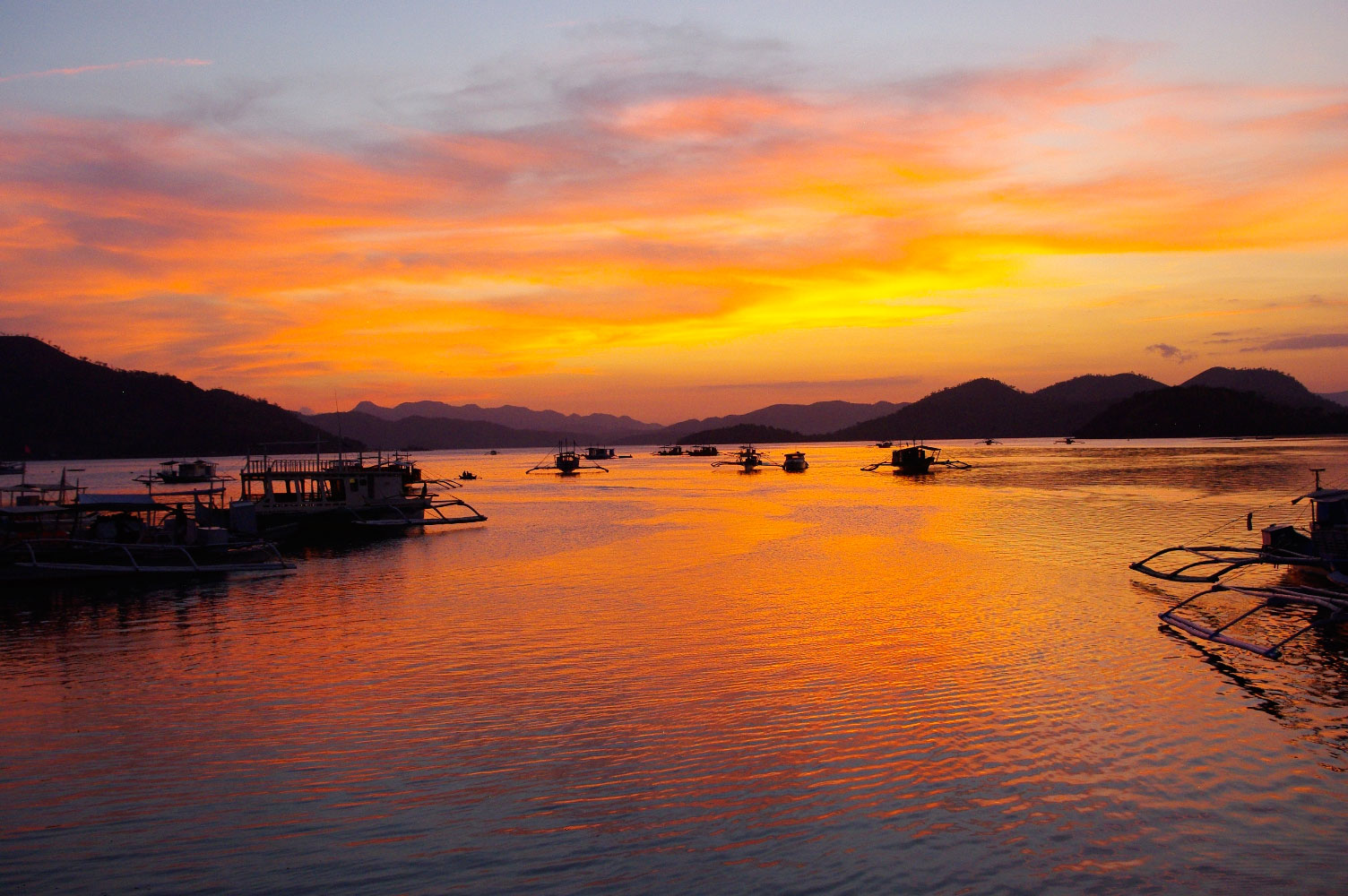
First of all, packing. Given how often we were moving and the means of transportation being used (jeepney, bus, motorbike, tricycle…), a voluminous bag was not an option. At this exercise, nobody could match Dino’s efficiency as he managed to travel with no more than his small Eastpack bagpack.
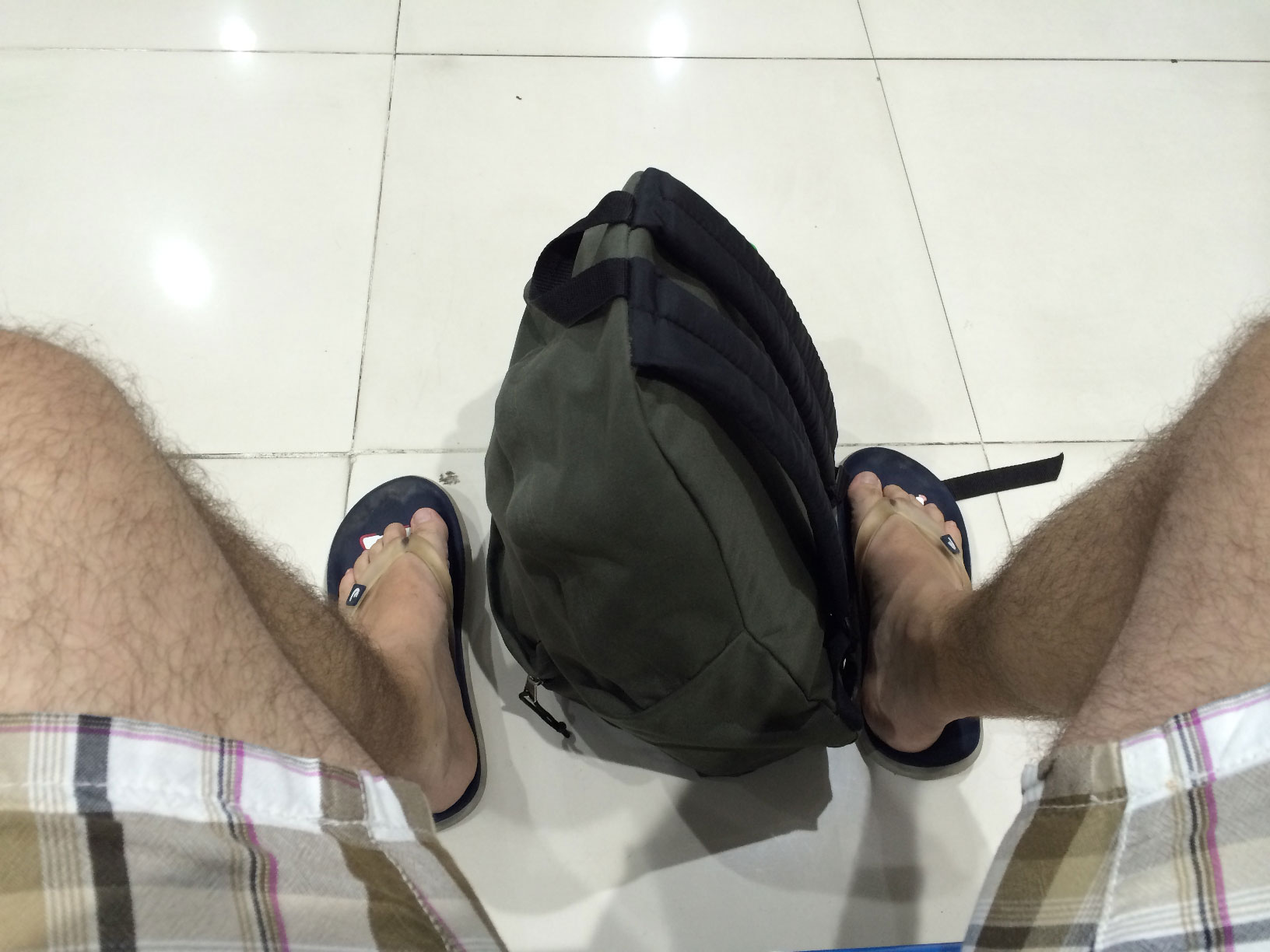
The second - and possibly most important - challenge is finding Wifi. As one could imagine, Palawan is far from being the most Wifi-friendly place in the world. We edged that risk by carrying a 3G router, which worked reasonably well throughout our trip (forget about Youtube though). We also found a hotel with a decent Wifi connection and a rooftop patio, perfectly fitted to setup our nomad office.
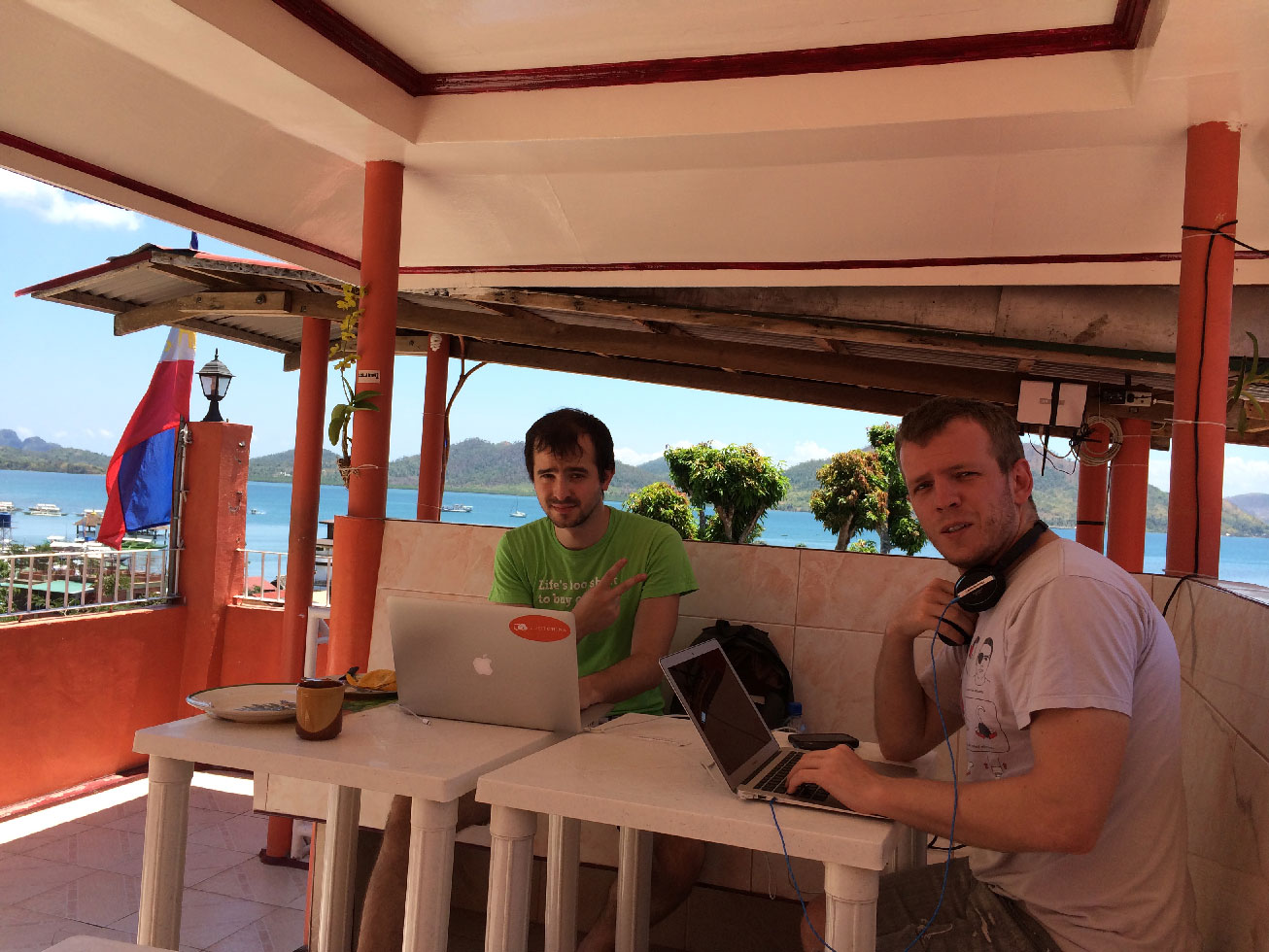
The third challenge is planning the work schedule. It’s obviously useless to be living in paradise if you’re sitting in front of your computer all day long. The trick here is to set expectations with your client, and make it clear you are working X days/week or X hours/day. In our case, our output was about 50% to 70% of our full time capacity. Mornings were usually the best time to work, as taking the sun during the day would leave us braindead in the evening.
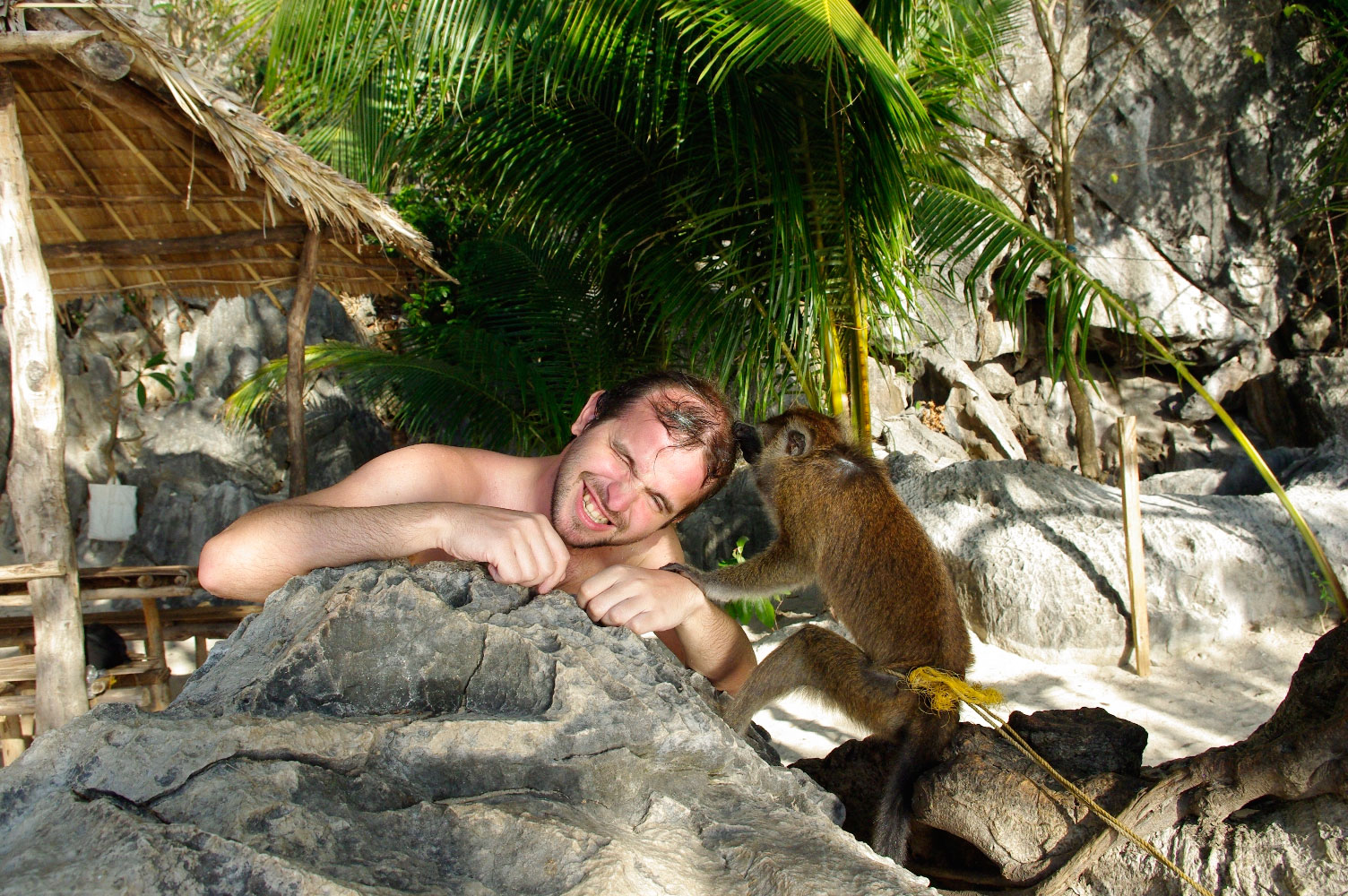
Overall, Palawan is probably better fitted to get your scuba diving certified than to be a digital nomad given the poor wifi situation (and distracting monkeys).
Hacker Villas and Coworking
The next step of our trip brought us to Indonesia where we explored the islands of Lombok and Bali. We adopted a slightly different lifestyle for a couple weeks and rented out villas where we’d stay a few days in a row. This solved a lot of the logistical issues, giving us easy access to office space and wifi, and leading to some uncommon work setups…
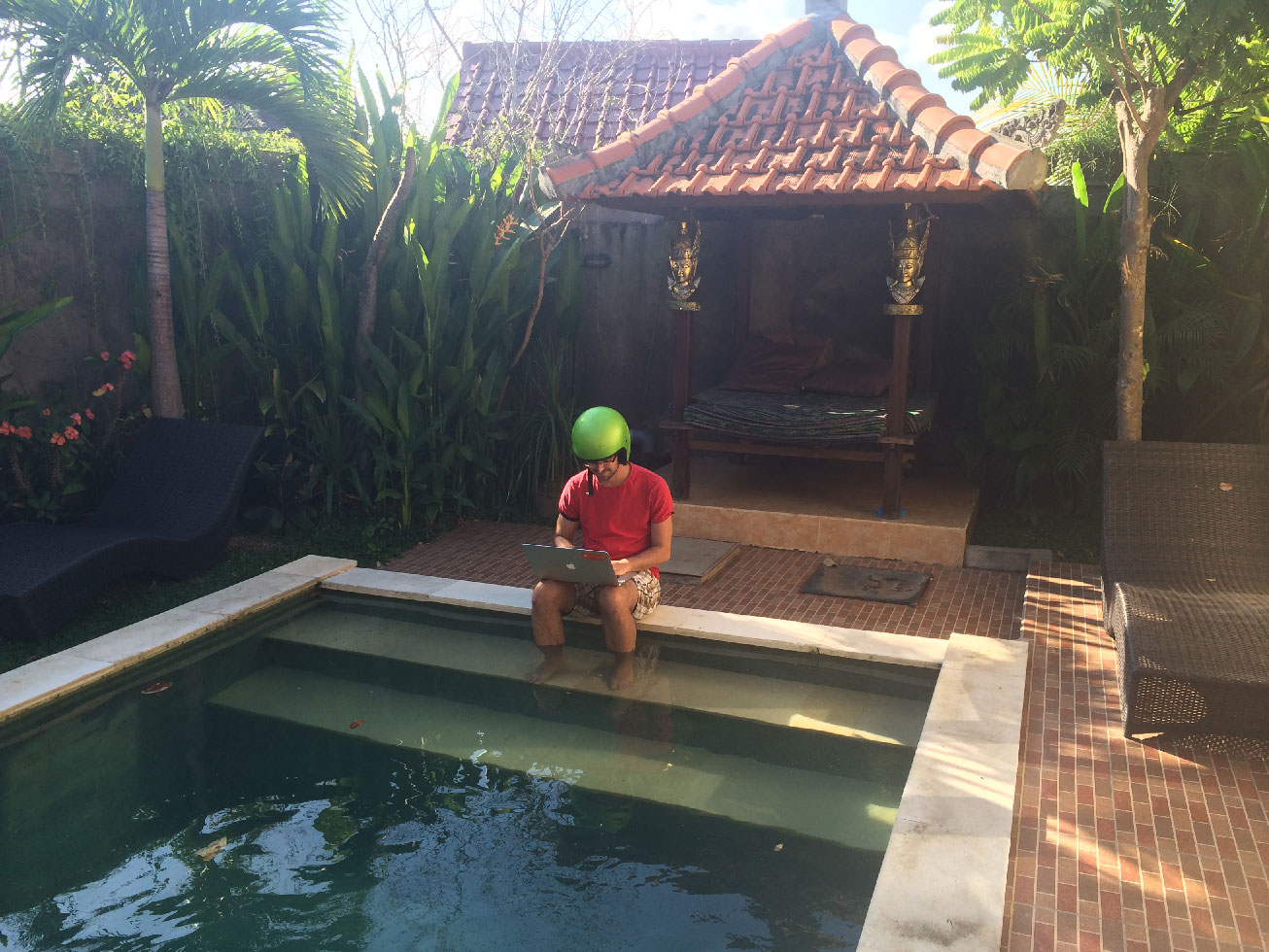
Renting a Villa in Bali is a truly viable option to get work done while living in semi-luxury at a super affordable price. We had originally intended to rent a bigger villa and invite a few of our nomad developer friends to join us. With 6 to 10 people, you can easily get a nightly rate below 20$/person. We abandoned the idea of a “Hacker Villa” due to time constraints but it’s something we’re considering putting in place in the years to come. Make sure to get in touch if it’s something you’d be interested in.
During our exploration of Bali, we also stopped by Hubud a coworking space located in the city of Ubud. The city sits on hills near the central mountains of Bali giving it a milder weather and attracting a lot of mid- to long-term travellers. We found the Hubud coworking space filled with digital nomads and full-time expats, running a number of events and workshops. While I had the impression developers were in minority, I did meet a tech startup on a team “hackation”. Despite being a comfortable and lively place to work from, Hubud’s rates are on the upside, especially for short term stays. After spending two days there, we happily returned to our ocean-side villa.
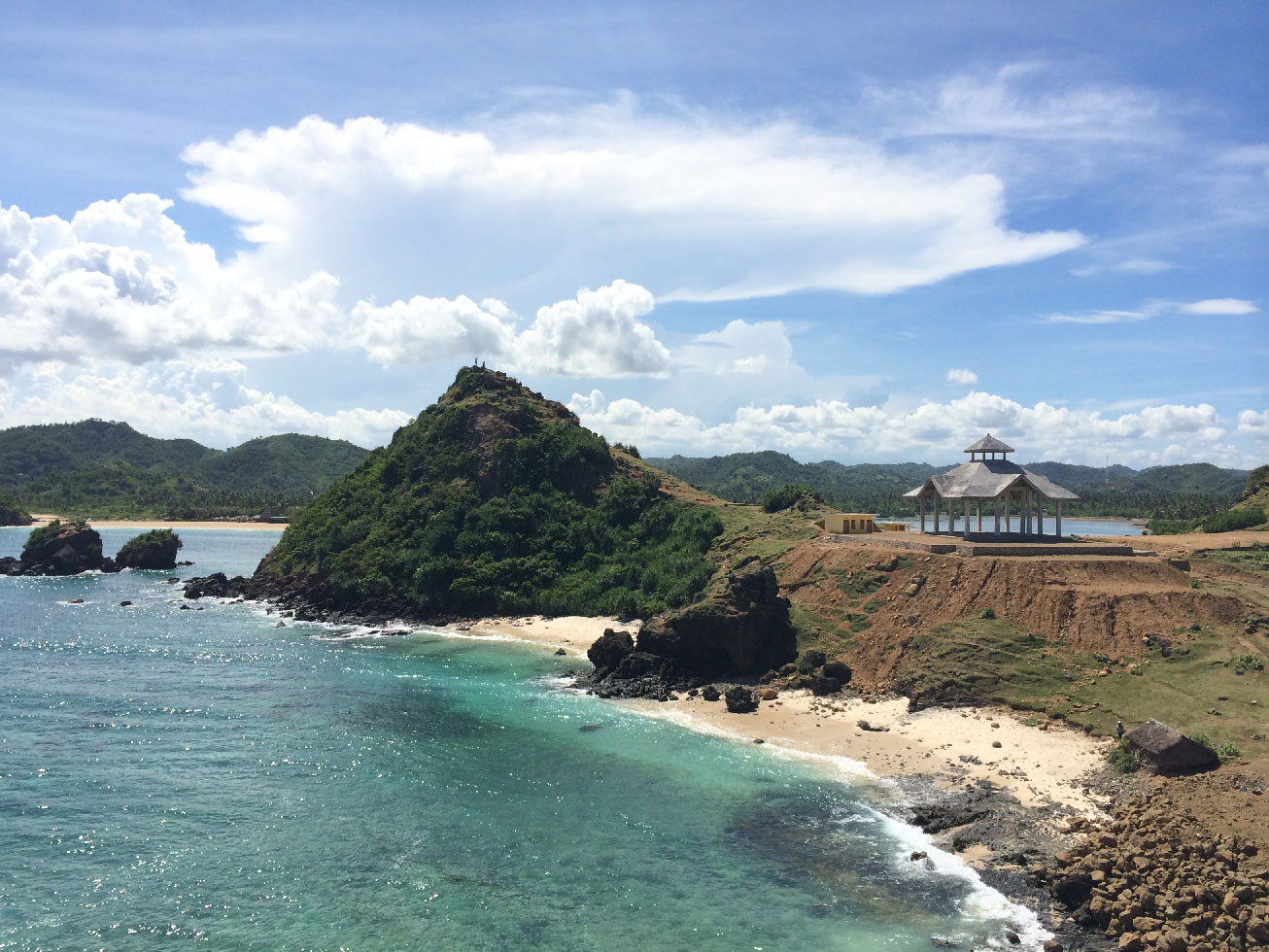
Roundup
This trip might have been the most epic work/life adventure we had all experienced so far. We met amazing people, explored dreamlike sceneries and experienced countless adventures - without putting our work life on hold. In a way, this was the realization of a dream Philip and I had about 12 months earlier in our San Francisco living room: “What if we worked while travelling the world?”.
Our new HQ is currently in Berlin (Germany) where we’re enjoying local beer and kebab, while witnessing a flourishing startup ecosystem. It’s pretty unlikely for this to be our last trip, so stay tuned (@bakeryHQ) for our next adventures. Feel free to get in touch and say hello at hi@thebakery.io.
